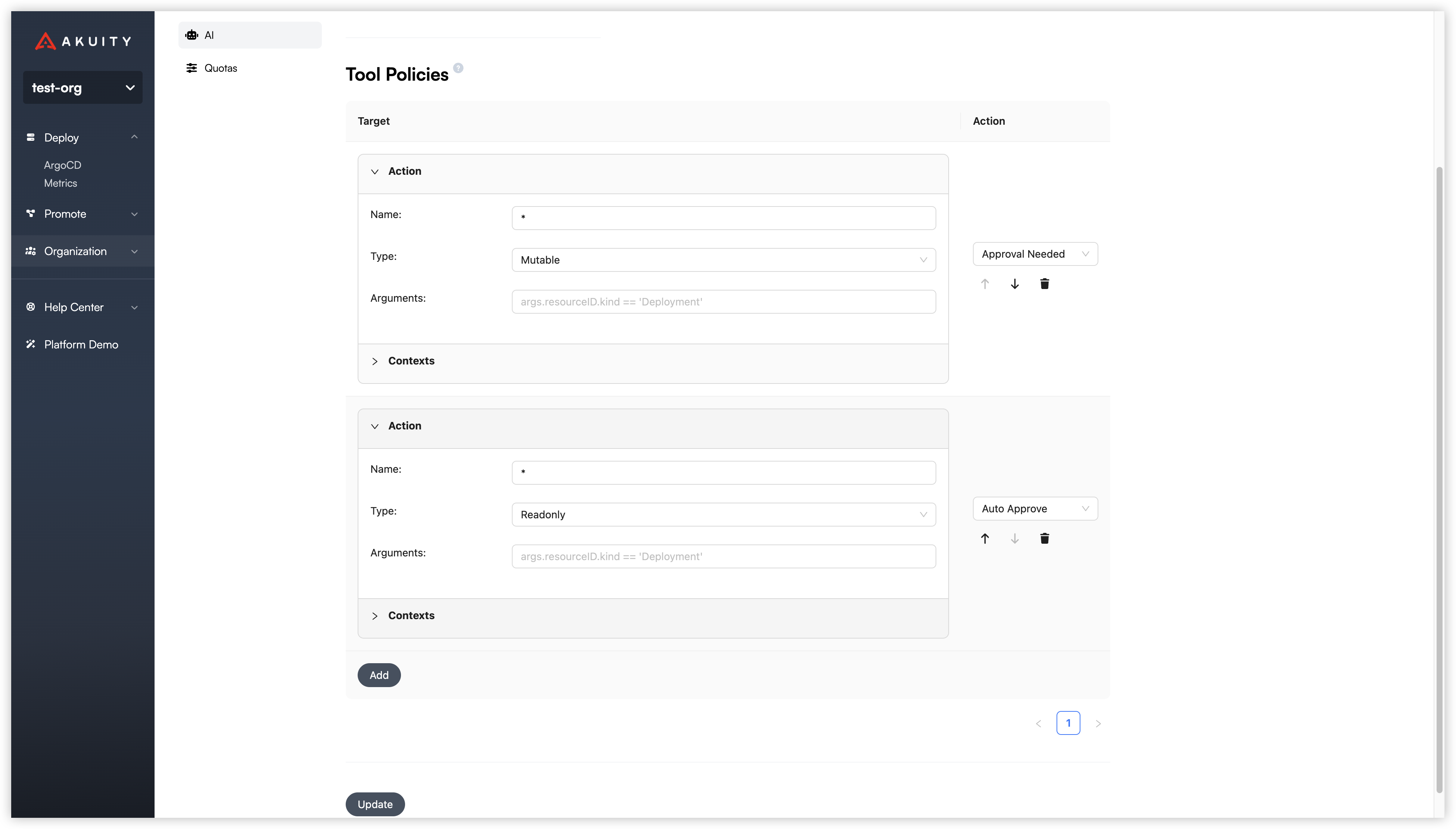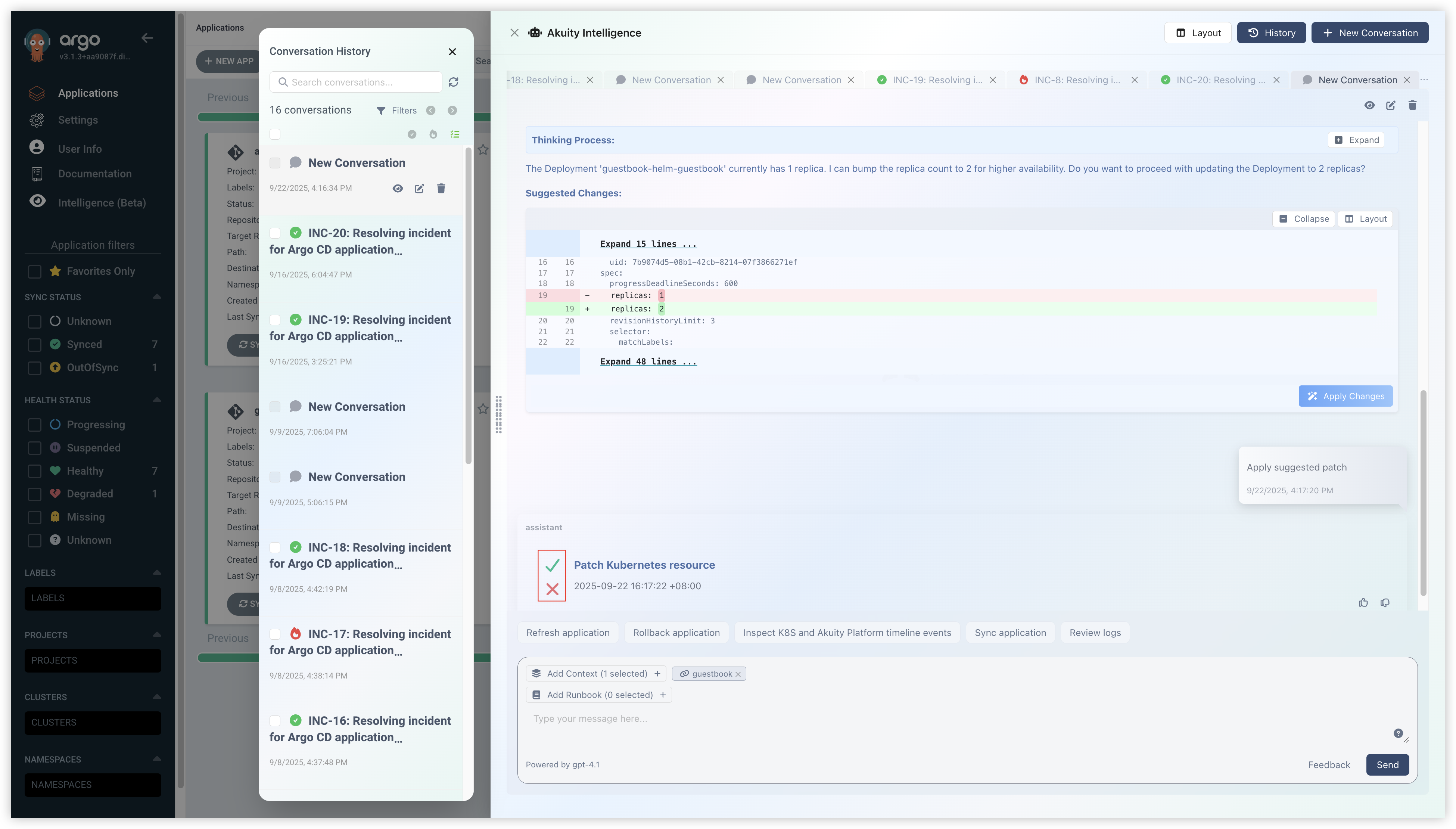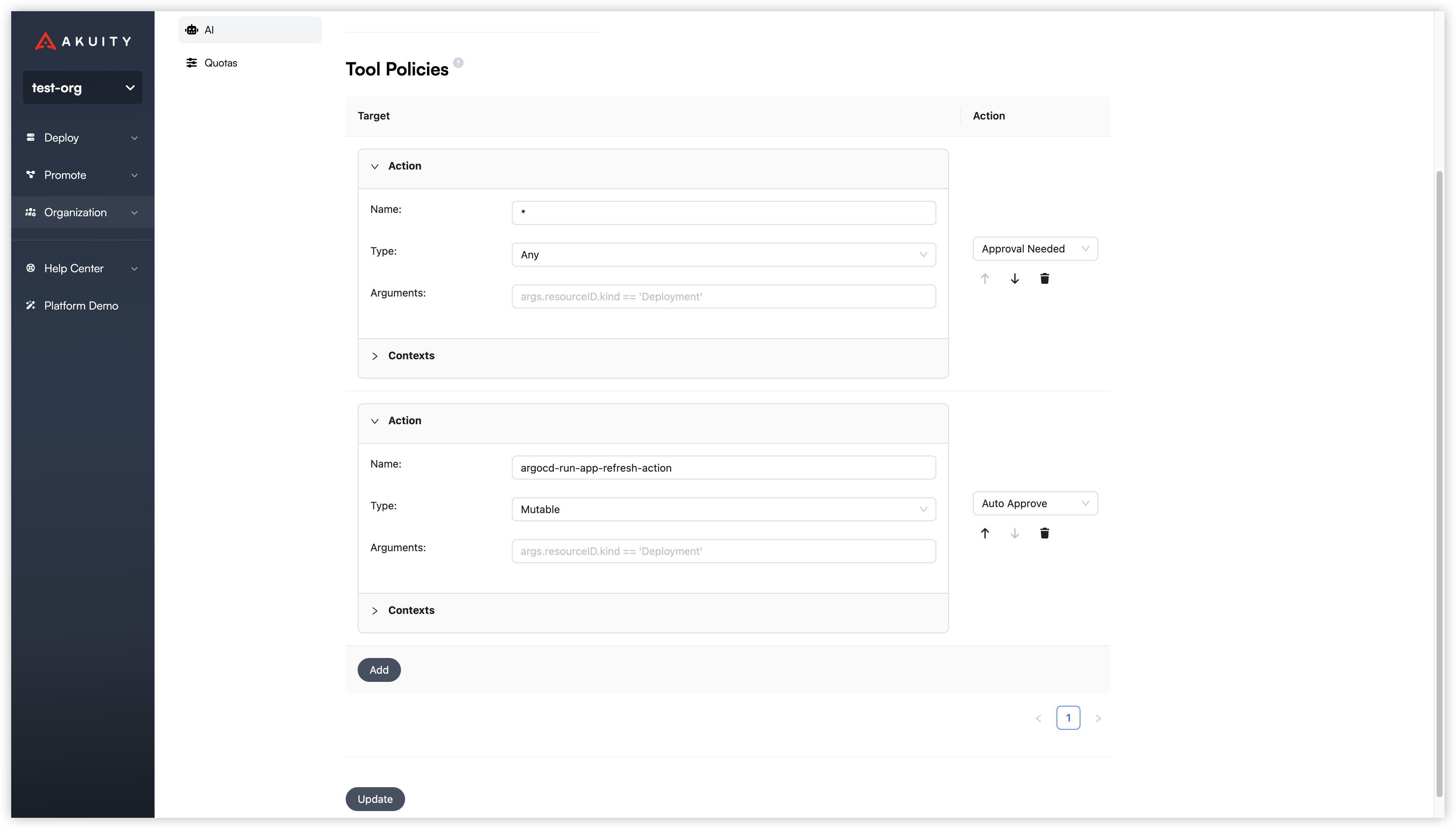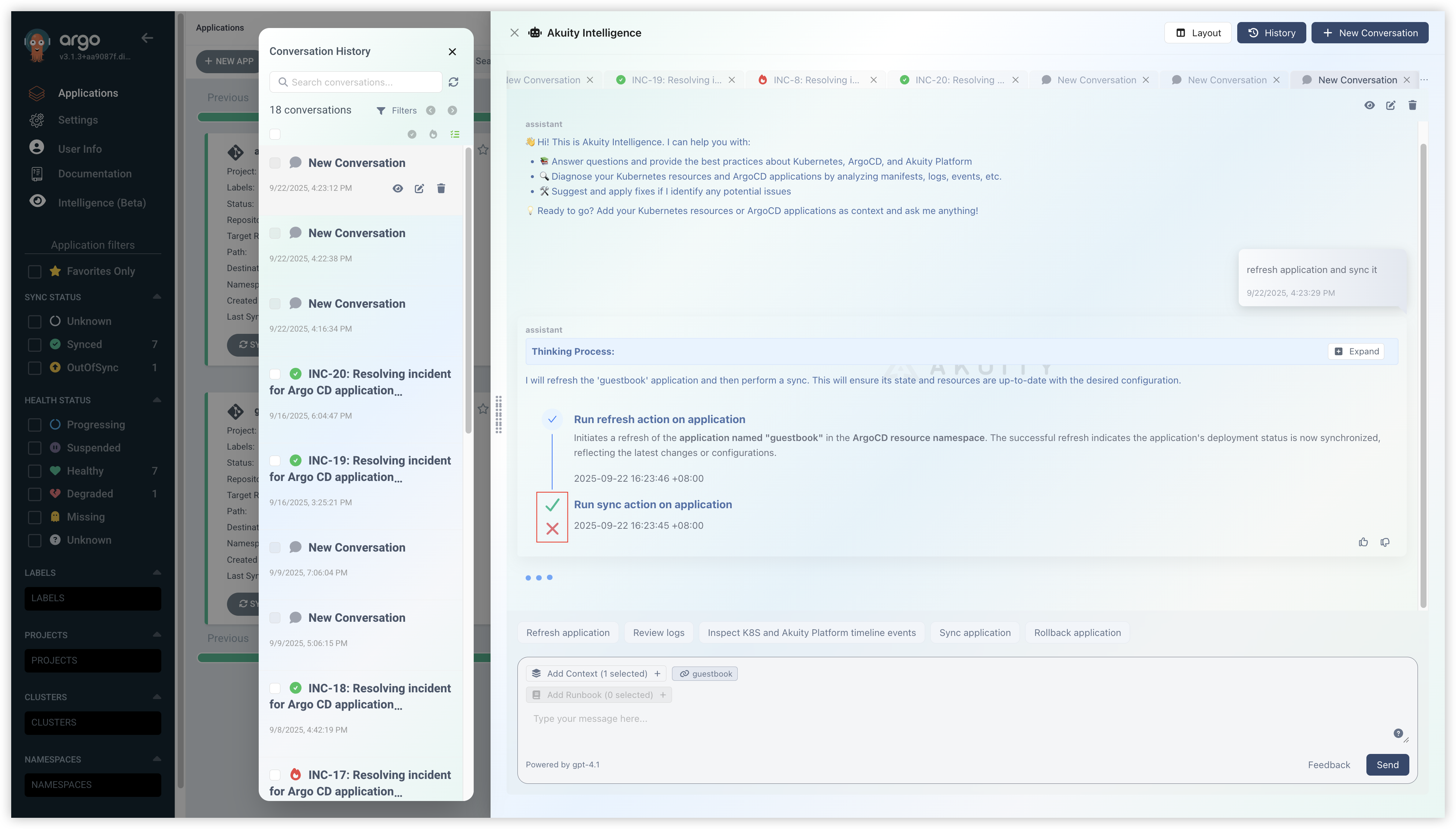Akuity Intelligence Capabilities
Akuity Intelligence can interact with Argo CD, Kargo, Kubernetes, and many third-party systems through tools. You can request the use of these tools in conversations with AI agents. These tools can also be used in runbooks. The following are all the tools available in Akuity Intelligence:
- Kubernetes
- Get the manifest of any single Kubernetes resource.
- View the resource tree for all objects within a specific namespace.
- Fetch recent logs from a workload (like a Pod or Deployment).
- Get the Kubernetes cluster and Akuity agent version.
- Apply a patch to a Kubernetes resource to modify its configuration.
- Verify a patch in a dry-run mode before applying it.
- Delete a Kubernetes resource from a cluster.
- List resources that are stuck in deletion.
- List deprecated APIs.
- List security vulnerabilities in container images.
- Argo CD
- List all Argo CD applications for an Argo CD instance.
- Get the manifest of a specific application.
- View the resource tree of an application (e.g., Deployments, Pods).
- Check for differences between a resource's live state and its desired state.
- Get Kubernetes and Akuity timeline events for an application.
- Get the version information of the Argo CD instance.
- Get the current configuration settings of the Argo CD instance.
- Sync an application.
- Rollback an application to its previously deployed version.
- Refresh an application.
- Kargo
- Get detailed information and resource tree of a Kargo project.
- List all Stages or get the details of a single Stage.
- List all Warehouses or get the details of a single Warehouse.
- List the history of promotions or get the details of a specific promotion.
- List the available Freights for promotion.
- Refresh a Warehouse.
- Promote a Freight to a specific Stage.
- Provide a detailed analysis of the changes and risks of a promotion.
- Incident Management
- Mark an incident as resolved.
- Update the root cause of an incident.
- Update the summary of an incident.
- Store a sequence of steps as a new, reusable runbook.
- Retrieve the contents of existing runbooks.
- Schedule a task to be executed after a specified delay.
- Cancel a previously scheduled task.
- Communication
- Send a message to a Slack channel.
- Edit a previously sent Slack message.
- List the available Slack channels for sending notifications.
- Documentation
- Search the update-to-date documentation on the Internet for Argo CD, Kargo and Akuity Platform relevant information.
Tool Policies
Tool Policies provide a critical security layer that gives you fine-grained control over the actions Akuity Intelligence can perform. By default, Akuity Intelligence is pre-configured with policies that allow the Akuity Agents to operate with reasonable independence, while still requiring human approval for sensitive or potentially risky actions. As an example the Akuity Agents are permitted to perform read-only actions, modify resources, and delete pods. The policies page allows you to customize this behavior, enabling you to define specific rules for when and how the Akuity Agents can execute function calls.
To configure tool policies:
- Navigate to Organization → Settings.
- From the left-hand menu, select the AI tab.
- The Tool Policies section allows you to view, create, and manage your policies.
Creating a Policy for User Approval
A policy is composed of a Target (the action being taken), the Contexts (where the action applies), and an Action (the required approval level).
To configure a rule that requires user approval for a specific operation, follow these steps:
- Click Add to create a new policy row.
- Define the Target of the operation you want to control:
- Name: The name of the function the AI is attempting to call. You can use * as a wildcard to apply the policy to any function.
- Arguments: A specific condition to match against the function's arguments. This allows for highly specific rules. For example, the expression
args.resourceID.kind == 'Deployment'targets any action where the resource being acted upon is a Kubernetes Deployment.
- Define the Contexts to limit the policy's scope. You can restrict the rule to specific:
- Clusters
- K8s Namespaces
- Argo CD Applications
- Kargo Projects
- Runbooks
- Set the final Action to Approve or Require Approval based on your needs.
For instance, with the following example, whenever the On-Call Agent attempts to execute a function that performs a write operation(e.g., update a Deployment), it will pause and explicitly ask for user confirmation before proceeding, ensuring a human is always in the loop for critical operations.


Multiple Tool Policies
You can configure multiple policies. The Akuity Platform evaluates them in order, with the last matching policy taking precedence.
For example, you could set a policy requiring approval for all tools, along with another that auto-approves the ArgoCD application refresh action. In this case, all tools would require approval except the refresh action.

